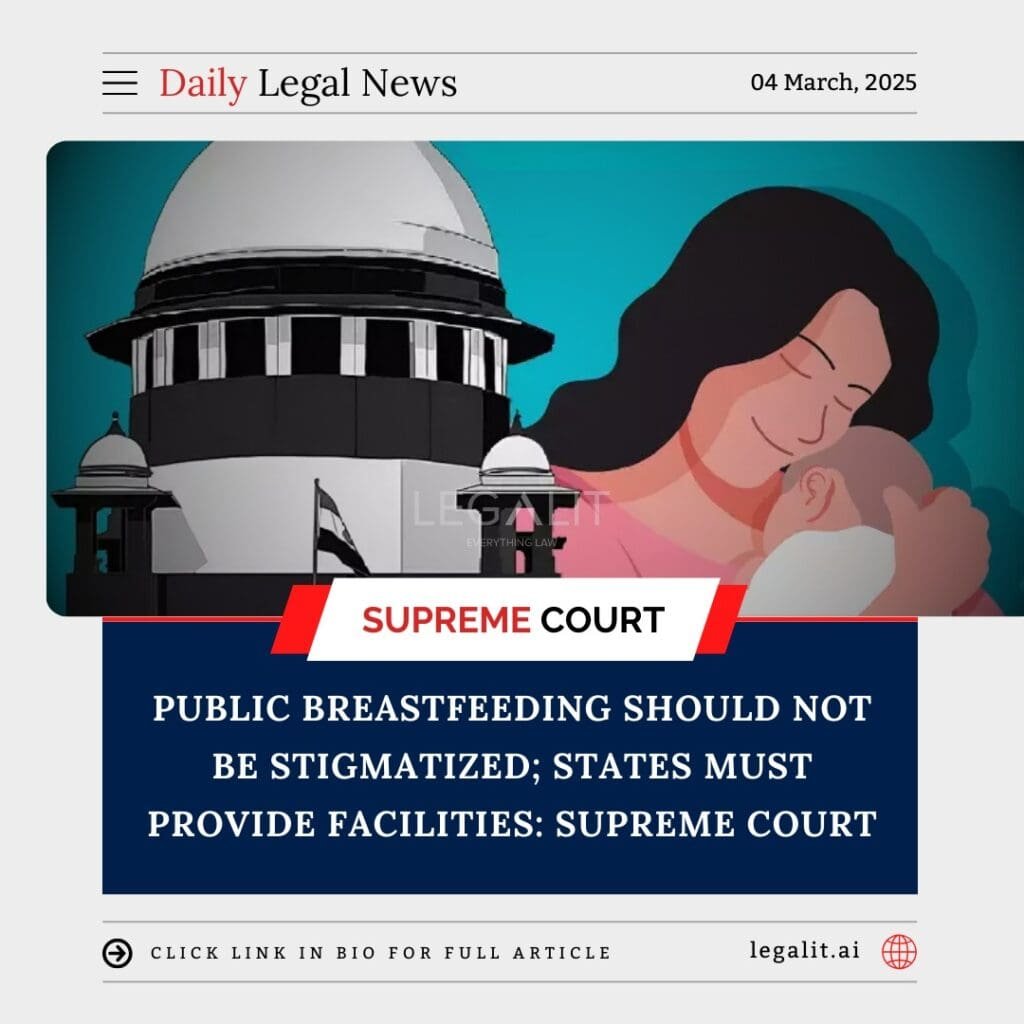
Background
The Supreme Court has emphasized that breastfeeding is a fundamental right of both the mother and the child and must not be stigmatized in public spaces. The ruling came in response to a case addressing the lack of breastfeeding facilities in public areas and the social stigma associated with nursing in open spaces.
The petition highlighted how the absence of designated spaces for breastfeeding forces mothers to either avoid feeding in public or face societal judgment. The lack of proper infrastructure, such as feeding rooms in transportation hubs, workplaces, and public institutions, further exacerbates the issue.
Court’s Rationale
The Supreme Court ruled that:
- Breastfeeding is a Natural Right: The act of feeding an infant is a biological necessity and a fundamental right for both the mother and the child. It must not be seen as an act of indecency or be subjected to moral scrutiny.
- State’s Duty to Provide Infrastructure: The Court directed state governments to ensure that public spaces, including railway stations, bus terminals, malls, and workplaces, provide designated breastfeeding areas.
- Protection from Harassment: The ruling stressed that nursing mothers should not face harassment or discomfort in public and called for awareness campaigns to normalize public breastfeeding.
Existing Measures
While some workplaces and airports in India have introduced lactation rooms, most public spaces lack such facilities. The Maternity Benefit Act mandates nursing breaks for working mothers, but no comprehensive law ensures breastfeeding-friendly public infrastructure. Internationally, countries like Australia, Canada, and the UK legally protect the right to breastfeed in public.
Conclusion
The Supreme Court’s ruling is a step towards creating a more inclusive society where mothers can breastfeed without fear or embarrassment. By urging the government to provide breastfeeding-friendly facilities, the judgment reinforces maternal and child rights while pushing for necessary policy changes. The onus now lies on state authorities to implement these directives and ensure that public spaces accommodate nursing mothers with dignity and ease.